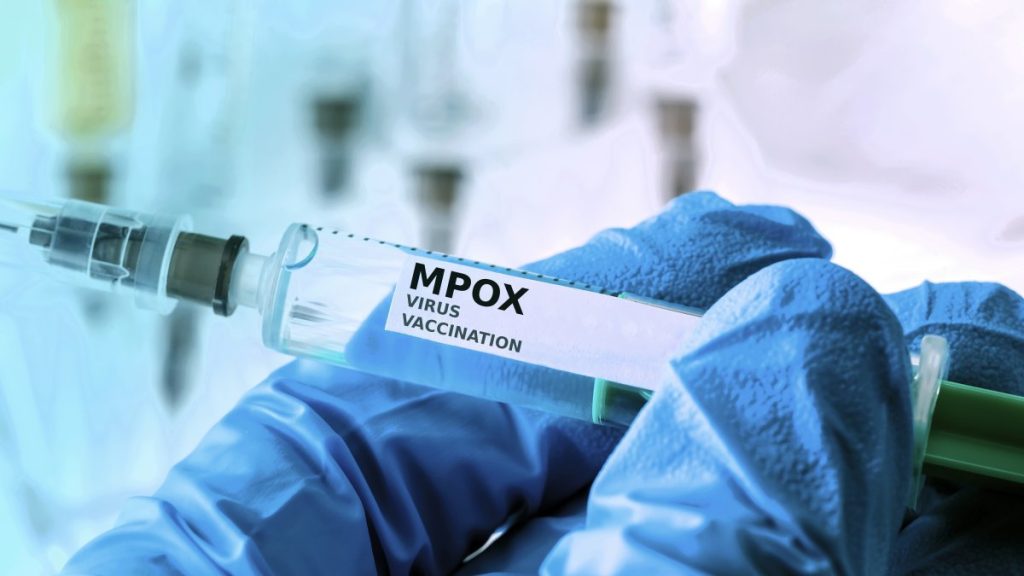In an effort to combat the growing threat of monkeypox (mpox), scientists from Türkiye and the United Kingdom have joined forces to expedite the development of an mRNA-based vaccine.
The collaborative study, led by Biruni University in Türkiye and London Metropolitan University in the U.K., aims to delve deeper into the transmission dynamics, immune system impacts and genetic mutations of the virus. The goal is to create a vaccine that can address these challenges and help curb the rapid spread of mpox, which surged globally in 2022.
Mpox, traditionally endemic to specific regions of Africa, gained significant attention when it spread rapidly across North America and Europe in 2022. Researchers from both institutions are focusing on understanding the virus’s mutation and adaptation capabilities. This is crucial, given mpox’s ability to evolve and rapidly adapt, a challenge that demands a swift response from the scientific community.
The research efforts are centered on mRNA technology, which has shown promising results in developing vaccines for rapidly mutating viruses, such as the COVID-19 pandemic. Scientists believe mRNA technology can help accelerate vaccine development for mpox, enabling quick adaptations to the virus’s evolving nature. The research also aims to understand how mpox affects the immune system and how it can be targeted by a vaccine that provides broad protection.
The study is a collaboration among leading scientists, including Dr. Elif Sibel Aslan, Dr. Cüneyd Yavaş, Dr. Nermin Akçalı, Dr. Lütfiye Karcıoğlu Batur, Dr. Asmaa Abuaisha and molecular biologist Erva Esma Yıldırım Uçarkuş, from Biruni University. The research team also includes Dr. Mustafa Solak from Biruni University and Dr. Kenneth N. White from London Metropolitan University. Their collective expertise is focused on analyzing the virus’s mutation patterns, understanding its spread and investigating how it impacts the immune system in order to develop a comprehensive vaccine.
Dr. Elif Sibel Aslan, from Biruni University’s Department of Molecular Biology and Genetics, emphasized the urgency of accelerating the vaccine development process. “In order to prevent the spread of mpox and mitigate the potential for new outbreak waves, we need to fast-track the vaccine development process. MRNA technology can provide a fast and flexible solution, helping us adapt quickly to viral mutations.”
Mpox’s genetic mutation potential is a significant concern, which is why researchers are focusing on developing a vaccine that can trigger a strong immune response. The researchers emphasize the importance of developing multi-epitope vaccines, which would target various parts of the virus, offering broad protection.
The research also highlights the importance of understanding mpox’s behavior in its endemic regions in Africa. Although mpox has been present in Africa for years, the recent global spread has raised alarm. Dr. Kenneth N. White noted that understanding how the virus behaves in Africa is essential to controlling its global spread.
“To develop an effective vaccine, we must fully understand how the virus spreads and mutates in Africa, where it has been endemic for years. International collaboration is critical to understanding the virus’s transmission dynamics,” White said.
To further this research, the team plans to expand their fieldwork to Africa. Biruni University researchers will visit Mozambique University to conduct field studies, analyze the virus’s genetic structure and evaluate the effectiveness of local health care systems in managing the virus. By studying mpox in its original regions, researchers aim to gather data on the virus’s mutation and spread, which will be essential in crafting an effective vaccine.
Molecular biologist Sajjad Eslamkhah from Biruni University also addressed public misconceptions about mpox. He pointed out that there is no scientific evidence to suggest that the virus spreads through surfaces such as toilets. “The primary risk of transmission is direct contact with infected individuals or through respiratory droplets,” Eslamkhah said. This clarification is important for dispelling myths and ensuring the public has accurate information on how to protect themselves.
The researchers are also advocating for increased efforts to contain the virus. They recommend accelerating vaccination programs, providing accurate information about mpox transmission and ensuring that early detection efforts are enhanced to protect high-risk groups. According to the World Health Organization (WHO), mpox continues to pose a risk of global spread, and the current efforts to study and develop vaccines are vital to preventing future outbreaks.


